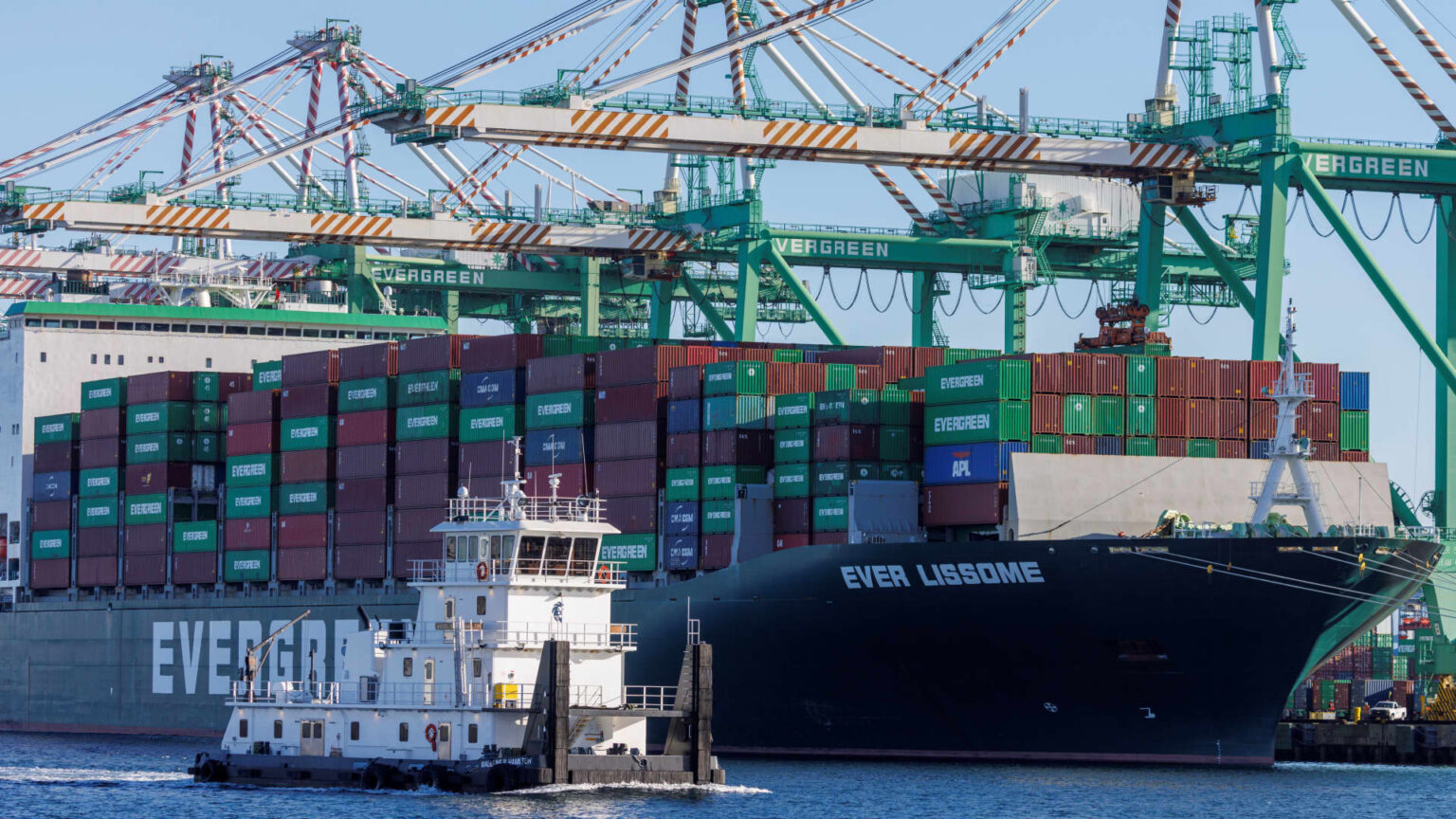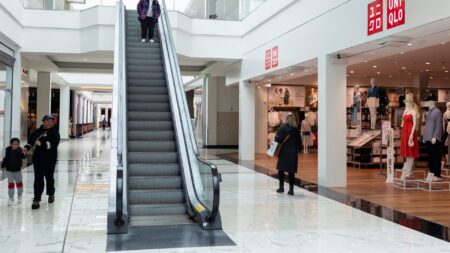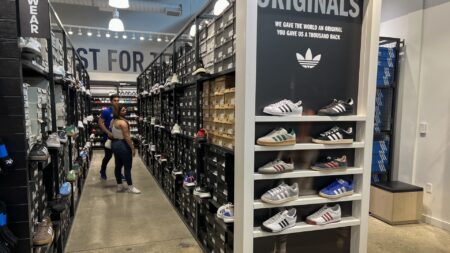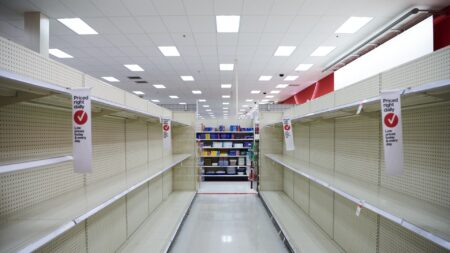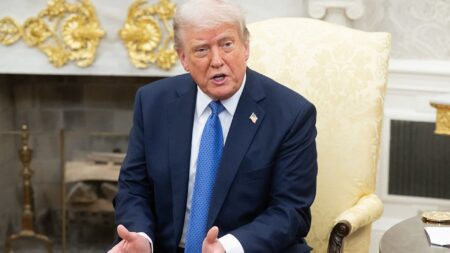Shipments from China to the west coast of the U.S. will plummet next week as the impact of President Donald Trump’s tariffs leads companies to cut their import orders.
Gene Seroka, the executive director of the Port of Los Angeles, said Tuesday on CNBC’s “Squawk Box” that he expects incoming cargo volume to slide by more than a third next week compared to the same period in 2024.
“According to our own port optimizer, which measures the loadings in Asia, we’ll be down just a little bit over 35% next week compared to last year. And it’s a precipitous drop in volume with a number of major American retailers stopping all shipments from China based on the tariffs,” Seroka said.
Shipments from China make up about 45% of the business for Port of LA, though some transport companies will be looking to pick up goods at other points in south east Asia to try to fill up their ships, Seroka said.
“Realistically speaking, until some accord or framework can be reached with China, the volume coming out of there — save a couple of different commodities — will be very light at best,” Seroka said.
Along with the lower volume of goods, Seroka said he expects roughly a quarter of the usual number of arriving ships to the port to be canceled in May.
Trump announced a sharp increase in tariffs on Chinese goods on April 2, which led to escalation on both sides, eventually resulting in both the U.S. and China imposing levies of more than 100% on many goods from each other. U.S. Treasury Secretary Scott Bessent has described the situation as “unsustainable” but there has been no sign of substantial negotiations between the two countries.
Data on shipments out of China had already started to signal slowing trade volume to the U.S., alarming some economists. Apollo Global Management chief economist Torsten Slok recently laid out a timeline where lower imports from China leads to layoffs in transportation and retail industries in the U.S., empty shelves and a recession this summer.
Seroka said he thinks U.S. retailers have about five to seven weeks before the impact of the curtailed shipments shipping begins to bite, partly because companies stocked up with larger shipments ahead of Trump’s tariff announcements.
“I don’t see a complete emptiness on store shelves or online when we’re buying. But if you’re out looking for a blue shirt, you might find 11 purple ones and one blue in a size that’s not yours. So we’ll start seeing less choice on those shelves simply because we’re not getting the variety of goods coming in here based on the additional costs in place. And for that one blue shirt that’s still left, you’ll see a price hike,” Seroka said.
Read the full article here







